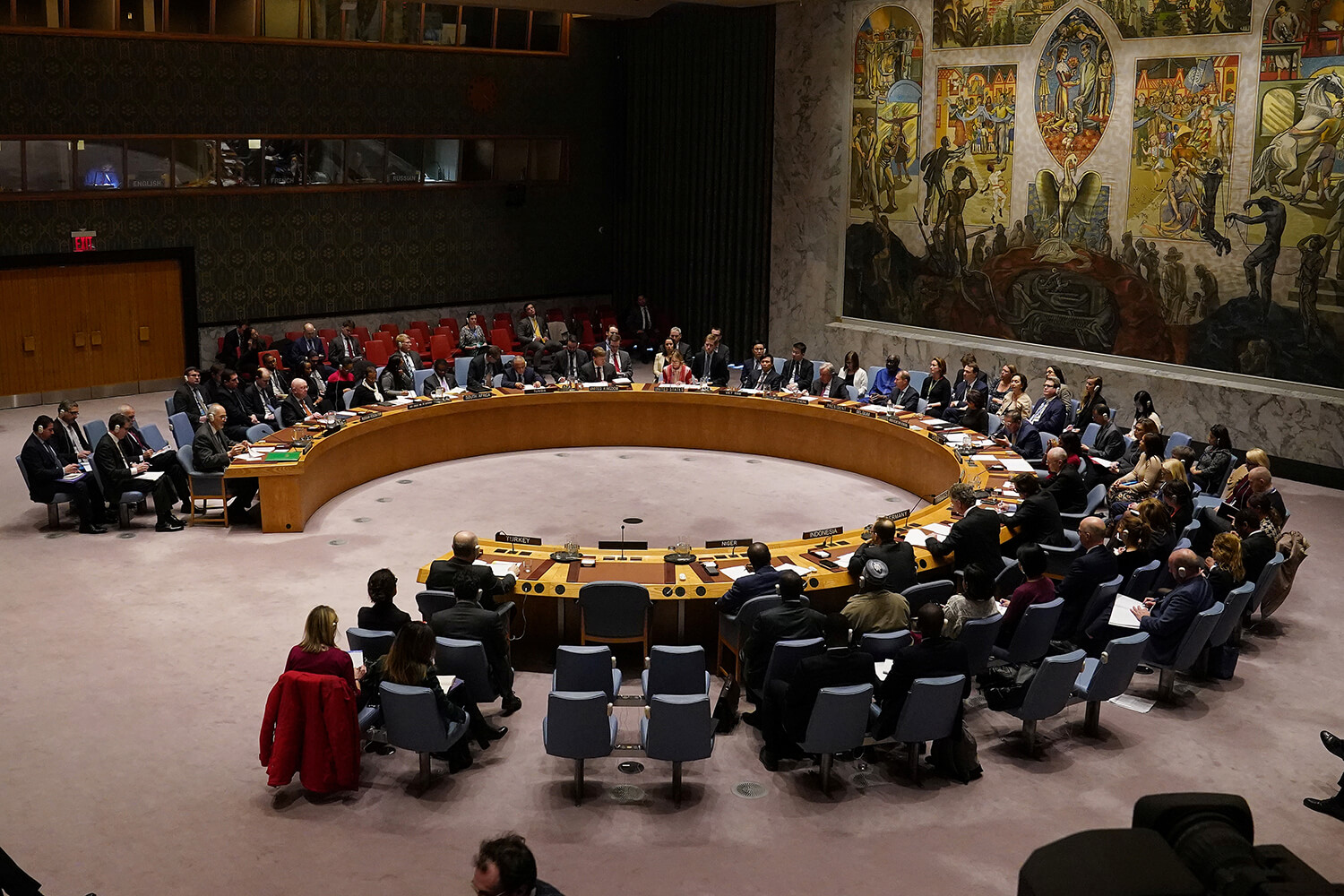On Friday, India, along with Ireland, Mexico, Norway, and Kenya, began their two-year terms as non-permanent members of the United Nations Security Council (UNSC). They were warmly welcomed by several member states and United Nations leaders, including the Under-Secretary-General for Political and Peacebuilding Affairs, Rosemary DiCarlo, who celebrated the induction of the five new members and hoped to work towards global “peace and security.” Apart from the five recently inducted members and the five permanent members of the Council – United States, United Kingdom, Russia, China and France – the UNSC comprises of Estonia, Niger, Saint Vincent and the Grenadines, Tunisia, and Vietnam.
On June 17, 2020, the election for the non-permanent members of the UNSC was conducted to elect one member from the African countries, one from the Asia-Pacific region, one from Latin America and Caribbean countries and two from Western Europe and Others Group (WEOG). Seven countries – namely, India, Mexico, Norway, Ireland, Canada, Kenya and Djibouti – contested for the five seats. Mexico, like India, stood unopposed for its position as the representative of its region. In a major setback to Canadian Prime Minister Justin Trudeau’s ambition to increase Canada’s influence on the international front, Norway and Ireland won the seats for the WEOG region by securing 130 and 128 votes respectively. After a short tussle between Djibouti and Kenya, Kenya emerged as the winner for the representative for the African countries.
The UNSC is a part of the six main organs of the United Nations. It aims to “maintain or restore international peace and security.” It has a total of 15 members, 5 of which are permanent and 10 non-permanent. While the five permanent members hold veto privileges to block any resolution, the same power is not enjoyed by its non-permanent members.
Over the past few months, the council has been the subject of significant scrutiny with several international leaders and experts criticising it for its inability to taking action against matters of international concern, specifically considering the veto powers that have often been used to further the political interests and protect the allies of the permanent members. Its inaction in crucial situations, such as the COVID-19 pandemic and the Syrian war, have been cited as examples to advocate for the need for monumental changes in the council’s functioning.
Each of the five newly inducted members is looking at different goals to achieve during their two-year terms. India has time and again reiterated that countering terrorism will be its priority during its tenure. S. Jaishankar, India’s External Affairs Minister, said that India will focus on securing a “concrete and result-oriented action at the security council for an effective response to international terrorism.” It will also work towards increasing the transparency in the UNSC Sanctions Committee, especially with respect to listing and delisting individuals and organisations.
India has further vowed to push for much-needed reforms in the UNSC. India’s Permanent Representative to the United Nations, T.S. Tirumurti, said that India will focus on bolstering cooperation within the council, where “because of paralysis of decision making, urgent requirements do not get properly focused.” India has previously highlighted its aim to achieve “NORMS”, which is A New Orientation for a Reformed Multilateral System. Through this, India will seek to stimulate reforms in the Council to achieve its long-lasting goal of securing a position as a permanent member. Over the years, several countries have supported this call as the current composition of the Security Council does not reflect the dynamics of the international community and the “geopolitical realities of the 21st century”.
On the other hand, Ireland has vowed to “engage the Council membership and wider international community on critical aspects of international peace and security, in line with Ireland’s principles, consistent and independent foreign policy.” Acknowledging that Ireland’s election to the Council comes as a “very challenging time,” Ireland has vowed to use the values of “empathy, partnership and independence” as guiding forces during its tenure.
Meanwhile, Mexico’s role in the Council will be guided by compliance with fundamental human rights principles, specifically freedom of speech and religion and sustainable growth and protection of the environment. Mexico will also work towards furthering a rule-based international order along with working towards uplifting minority communities and securing gender equality.
Norway, as a founding member of the United Nations, has deeply rooted interests as a non-permanent member of the UNSC. According to Mona Juul, the Norwegian Ambassador to the United Nations, “International law and human rights will form the basis for our efforts. Peace, diplomacy, the inclusion of women, protection of civilians, and climate and security, will be our guiding priorities.” Norway also intends on using its expertise in areas such as peace and reconciliation missions to secure humanitarian solutions to ongoing conflicts across the world. It will also further push the Council to actively work towards environmental issues.
Kenya, on the other hand, aims to unify the voices of the African nations. After Kenya’s election into the Council in June, President Uhuru Kenyatta said, “Kenya will endeavour to consolidate and voice Africa’s position in the Security Council and will advance its 10-point agenda as outlined during the campaign period.” Its 10-point agenda, amongst other issues, focussed on strengthening multilateralism, countering terrorism, securing regional peace, achieving gender equality, and working towards lasting solutions to humanitarian challenges.
UNSC Welcomes 5 New Non-Permanent Members
As India, Kenya, Mexico, Norway, and Ireland join the UNSC as non-permanent members, each newly inducted member aims to bring in a unique approach during their two-year tenure.
January 7, 2021

SOURCE: REUTERS
